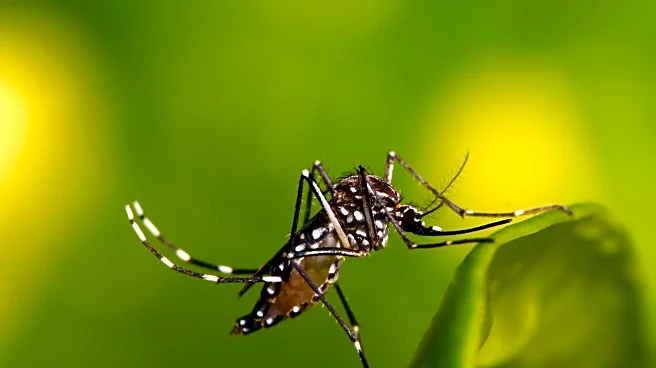What's Happening?
The UK Health Security Agency (UKHSA) has discovered two species of mosquitoes, Aedes aegypti and Aedes albopictus, in surveillance traps across the UK. These species are known carriers of several tropical diseases, including yellow fever, dengue, chikungunya, Zika, and dirofilariasis. The presence of these mosquitoes in Europe is considered a significant public health threat, as they are non-native species that can potentially spread these diseases to the local population. The discovery was made as part of ongoing efforts to monitor and control the spread of non-native species in the region.
Why It's Important?
The identification of these disease-carrying mosquitoes in the UK highlights the growing risk of tropical diseases spreading in regions where they were previously uncommon. This development could have serious implications for public health systems, requiring increased vigilance and potentially new strategies for disease prevention and control. The presence of these mosquitoes may lead to a rise in cases of diseases that are typically associated with tropical climates, posing challenges for healthcare providers and public health officials. It underscores the importance of monitoring and controlling non-native species to prevent outbreaks and protect public health.
What's Next?
In response to this discovery, public health agencies may need to implement enhanced surveillance and control measures to prevent the spread of these mosquitoes and the diseases they carry. This could involve increased monitoring, public awareness campaigns, and possibly the development of new strategies for mosquito control. Collaboration with international health organizations may also be necessary to address the potential threat posed by these species. The situation will likely require ongoing assessment to determine the effectiveness of control measures and to adapt strategies as needed.
Beyond the Headlines
The presence of these mosquitoes in the UK may also prompt discussions on climate change and its role in altering the habitats and migration patterns of various species. As global temperatures rise, the range of tropical species may expand, leading to new challenges in regions unaccustomed to dealing with such threats. This situation could serve as a case study for understanding the broader ecological impacts of climate change and the need for adaptive strategies in public health and environmental management.








